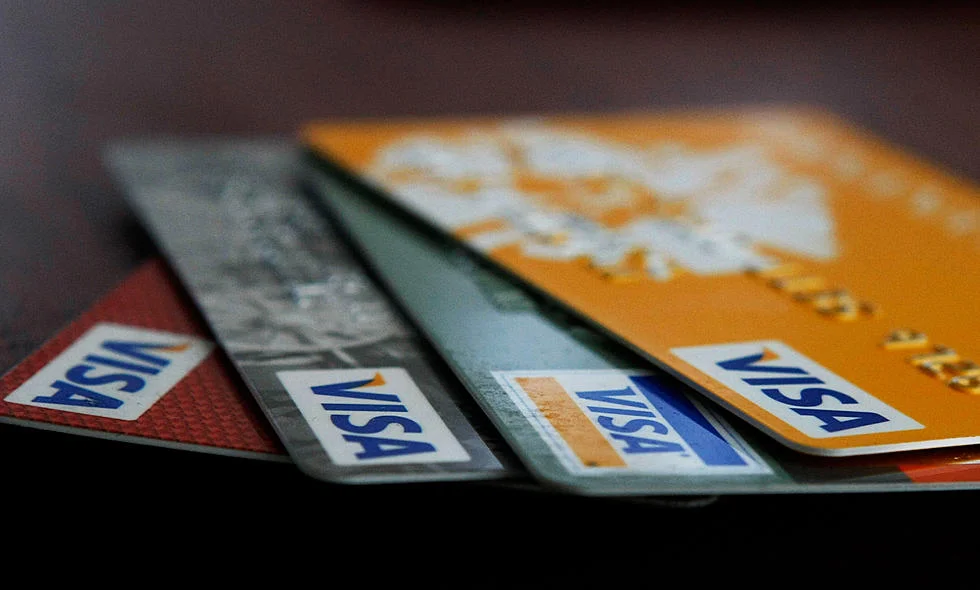How To Get An 800 Credit Score? Having an 800 credit score is a dream for many Americans, and rightfully so. It opens up doors to low-interest rates, better loan terms, and an overall easier financial life. But how do you achieve such a high credit score? In this article, we will explore the steps you can take to get an 800 credit score, as well as answer common questions related to the topic.
What is a Credit Score?
First, let’s define what a credit score is. A credit score is a number that represents your creditworthiness. It is a three-digit number that ranges from 300 to 850, with higher scores indicating better creditworthiness. Credit scores are calculated based on various factors, including payment history, credit utilization, length of credit history, types of credit used, and new credit.
Understanding the Credit Score Range
Before we dive into the strategies, it’s essential to understand the credit score range. Credit scores range from 300 to 850, with 850 being the highest possible score. A credit score of 800 or above is considered an exceptional credit score, and it puts you in the top tier of creditworthy borrowers.
Why is an 800 Credit Score Important?
An 800 credit score is considered excellent and can open up many financial opportunities. With such a high credit score, you are likely to qualify for the best interest rates and loan terms. This can save you thousands of dollars in interest over the life of a loan. Additionally, an 800 credit score can make it easier to get approved for credit cards, apartments, and even jobs.
An 800 credit score is considered an excellent credit score and is one of the highest credit scores you can achieve. Having an 800 credit score is important for several reasons:
- Access to Credit: With an 800 credit score, you have access to the best credit cards and loans with the lowest interest rates and most favorable terms. You’ll be able to qualify for the highest credit limits and receive the best rewards and perks, such as cashback, travel rewards, and points.
- Lower Interest Rates: With an 800 credit score, lenders consider you a low-risk borrower, and they are willing to offer you lower interest rates. This can save you a significant amount of money over the life of a loan, whether it’s a mortgage, car loan, or personal loan.
- Better Rental and Job Opportunities: Your credit score can impact your ability to rent an apartment or get a job. Many landlords and employers perform credit checks as part of their screening process, and having an 800 credit score can make you a more attractive candidate.
- Higher Approval Rates: With an 800 credit score, you’re more likely to be approved for credit and other financial products, including mortgages, car loans, personal loans, and credit cards. This can make it easier to achieve your financial goals, such as buying a home, purchasing a car, or starting a business.
- More Purchasing Power: As mentioned in one of the keywords, an 800 credit score has more purchasing power than 100k. This means that with an 800 credit score, you’ll be able to qualify for larger loans and credit limits, which can allow you to make bigger purchases or investments.
Having an 800 credit score is important because it gives you access to the best credit and loan products, lower interest rates, better rental, and job opportunities, higher approval rates, and more purchasing power. By maintaining a high credit score and managing your credit responsibly, you can enjoy these benefits and achieve your financial goals.
Factors That Affect Your Credit Score
Your credit score is determined by several factors, including payment history, credit utilization, length of credit history, credit mix, and new credit. Payment history and credit utilization carry the most weight, accounting for 35% and 30%, respectively, of your credit score. Therefore, making on-time payments and keeping your credit utilization low is crucial to achieving and maintaining a high credit score.
There are several factors that affect your credit score, and understanding them can help you take steps to improve your creditworthiness.
- Payment History: Your payment history is the most important factor that affects your credit score. This includes whether you have made payments on time, how many times you have missed payments, and how late those payments were. Late payments can stay on your credit report for up to seven years and can significantly lower your credit score.
- Credit Utilization: Your credit utilization ratio is the amount of credit you are using compared to your total available credit. A high credit utilization ratio can negatively impact your credit score, as it can be seen as a sign that you are relying too heavily on credit. A good rule of thumb is to keep your credit utilization ratio below 30%.
- Length of Credit History: The length of your credit history is also an important factor that affects your credit score. This includes the age of your oldest credit account, the age of your newest credit account, and the average age of all your credit accounts. Lenders like to see a long credit history, as it shows that you have a track record of managing credit responsibly.
- Types of Credit: The types of credit you have can also affect your credit score. Having a mix of credit accounts, such as credit cards, car loans, and mortgages, can be seen as a positive sign that you can manage different types of credit.
- New Credit: Applying for new credit can also affect your credit score. Each time you apply for credit, it generates a hard inquiry on your credit report, which can lower your credit score. It’s best to only apply for credit when you really need it and to avoid applying for too much credit at once.
- Credit Report Inquiries: In addition to new credit applications, inquiries from other companies can also impact your credit score. For example, a credit check for a rental application or a job application can result in a soft inquiry, which won’t impact your credit score. However, a hard inquiry from a lender can lower your credit score.
Your credit score is impacted by several factors, including your payment history, credit utilization, length of credit history, types of credit, new credit, and credit report inquiries. By understanding these factors and taking steps to manage your credit responsibly, you can improve your credit score and increase your chances of being approved for credit and other financial opportunities.
How to Get an 800 Credit Score
Now that we understand the importance of having an 800 credit score, let’s explore the steps you can take to achieve it.
Pay Your Bills on Time
Payment history is one of the most critical factors in determining your credit score. To achieve an 800 credit score, you must have an impeccable payment history. This means paying all your bills on time, every time. Late payments, missed payments, and defaults can have a severe negative impact on your credit score.
Keep Your Credit Utilization Low
Credit utilization refers to the percentage of your available credit that you are currently using. To maintain a good credit score, it is recommended to keep your credit utilization below 30%. To achieve an 800 credit score, you should aim for a credit utilization rate of 10% or lower.
Maintain a Long Credit History
The length of your credit history is another important factor in determining your credit score. To achieve an 800 credit score, you need to have a long and positive credit history. This means keeping your oldest credit accounts open and in good standing.
Diversify Your Credit Types
Credit mix refers to the different types of credit accounts you have, such as credit cards, loans, and mortgages. Having a mix of credit types can improve your credit score, as it shows lenders that you can handle different types of credit responsibly.
Limit New Credit Inquiries
Every time you apply for new credit, a hard inquiry is placed on your credit report. These inquiries can negatively impact your credit score, especially if you have several within a short period. To achieve an 800 credit score, you should limit new credit inquiries and only apply for credit when necessary.
How To Get an 800 Credit Score In 45 Days?
It’s important to note that achieving an 800 credit score in just 45 days is not a guarantee, as it takes time to build good credit habits and establish a solid credit history. However, there are steps you can take to improve your credit score and move closer to an 800 credit score in a short period of time:
- Check Your Credit Report: Start by checking your credit report for errors or inaccuracies. Dispute any errors with the credit bureaus and have them removed from your report. This can improve your credit score quickly.
- Pay Off High-Interest Debt: Pay off any high-interest debt, such as credit card balances, to lower your credit utilization ratio. This ratio compares your credit card balances to your credit limits and should be below 30% to maintain a good credit score.
- Increase Your Credit Limits: Ask your credit card issuer to increase your credit limits. This can help improve your credit utilization ratio, as long as you don’t increase your spending at the same time.
- Become an Authorized User: Ask a family member or friend with good credit to add you as an authorized user on their credit card. This can help improve your credit score, as long as the primary cardholder has good credit habits.
- Make On-Time Payments: Pay all of your bills on time, including credit card payments, loan payments, and utility bills. Payment history is the most important factor in your credit score, and on-time payments can help improve your score quickly.
- Limit New Credit Inquiries: Avoid applying for new credit, such as credit cards or loans, as each application results in a hard inquiry on your credit report. Hard inquiries can lower your credit score temporarily.
- Keep Old Credit Accounts Open: Closing old credit accounts can lower your credit utilization ratio and shorten your credit history, both of which can lower your credit score. Keep old credit accounts open, even if you don’t use them regularly.
While it may be challenging to achieve an 800 credit score in just 45 days, following these steps can help you improve your credit score quickly and move closer to an excellent credit score. Remember that building good credit habits takes time, but by making these changes, you can improve your credit score and achieve your financial goals.
Tips and Strategies to Achieve an 800 Credit Score
Make Payments on Time
The most crucial factor in achieving an 800 credit score is making payments on time. Even one late payment can hurt your credit score, so it’s essential to pay your bills on time every month. Set up automatic payments or reminders to ensure you never miss a payment.
Keep Your Credit Utilization Low
Your credit utilization ratio is the amount of credit you use compared to your credit limit. It’s recommended to keep your credit utilization ratio below 30%, with an ideal ratio of 10%. Keeping your credit utilization low can help boost your credit score.
Increase Your Credit Limit
Increasing your credit limit can also help keep your credit utilization ratio low. Call your credit card issuer and ask for a credit limit increase, but be sure not to use the additional credit to rack up more debt.
Monitor Your Credit Report
Regularly monitoring your credit report can help you identify and correct any errors or inaccuracies that may be hurting your credit score. You can get a free credit report from each of the three credit bureaus (Equifax, Experian, and TransUnion) once a year from AnnualCreditReport.com.
Diversify Your Credit Mix
Having a mix of credit types, such as credit cards, auto loans, and mortgages, can help boost your credit score. However, don’t open new credit accounts just to diversify your credit mix as it can hurt your credit score in the short term.
Keep Old Credit Accounts Open
The length of your credit history is also a crucial factor in determining your credit score. Keeping old credit accounts open, even if you’re not using them, can help lengthen your credit history and improve your credit score.
Avoid Hard Inquiries
A hard inquiry occurs when a lender checks your credit report when you apply for a loan or credit card. Multiple hard inquiries in a short period can hurt your credit score. Therefore, try to avoid applying for multiple credit accounts simultaneously.
Is it hard to get an 800 credit score?
Achieving an 800 credit score can be challenging, as it requires a long history of responsible credit use and a deep understanding of the factors that impact your credit score. However, with the right strategies, it is possible to attain an 800 credit score. It takes time, patience, and discipline to maintain a high credit score, but the benefits are well worth the effort. A good credit score can help you qualify for the best interest rates, get approved for loans and credit cards, and save money on interest charges over time.
How long does it take to get an 800 credit score?
The length of time it takes to achieve an 800 credit score varies depending on your current credit situation and your credit habits. Generally speaking, it takes years of responsible credit behavior to achieve an 800 credit score.
To achieve an 800 credit score, you need to have a long credit history with a variety of credit accounts, such as credit cards, loans, and mortgages, and demonstrate responsible credit habits, such as paying your bills on time and keeping your credit utilization low.
If you have a limited credit history, it may take longer to achieve an 800 credit score. You can start by establishing credit accounts, such as a secured credit card or a small loan, and using them responsibly. Make all of your payments on time, keep your credit utilization low, and avoid applying for too much credit at once.
It’s also important to note that negative information, such as late payments or collections, can stay on your credit report for up to seven years, which can lower your credit score. To achieve an 800 credit score, you need to maintain good credit habits over an extended period of time and avoid any negative credit events.
In summary, achieving an 800 credit score takes time and requires a history of responsible credit behavior. It’s not something that can be achieved overnight, but by establishing good credit habits and maintaining them over time, you can achieve an excellent credit score and enjoy the benefits that come with it.
FAQs
Q: Is it possible to achieve an 800 credit score?
A: Yes, it’s possible to achieve an 800 credit score with years of responsible credit behavior and solid credit history.
Q: How long does it take to achieve an 800 credit score?
A: The length of time it takes to achieve an 800 credit score varies depending on your current credit situation and credit habits. Generally speaking, it takes years of responsible credit behavior to achieve an 800 credit score.
Q: What are some tips for achieving an 800 credit score?
A: To achieve an 800 credit score, focus on building a long credit history with a variety of credit accounts, such as credit cards, loans, and mortgages. Make all of your payments on time, keep your credit utilization low, and avoid applying for too much credit at once.
Q: Can I achieve an 800 credit score if I have negative items on my credit report?
A: Negative items, such as late payments or collections, can lower your credit score and stay on your credit report for up to seven years. However, by establishing good credit habits and maintaining them over time, you can overcome negative credit events and achieve an excellent credit score.
Q: What are some benefits of having an 800 credit score?
A: Having an 800 credit score can provide access to lower interest rates, better credit offers, and higher credit limits. It can also make it easier to qualify for loans, mortgages, and other credit products. Additionally, having an excellent credit score can improve your financial stability and open up more opportunities for your financial future.
Q: How much does credit utilization impact my credit score?
A: Credit utilization, or the amount of credit you’re currently using compared to your total available credit, can have a significant impact on your credit score. Aim to keep your credit utilization below 30% to maintain a good credit score and below 10% for an excellent score.
Q: How often should I check my credit score?
A: You should check your credit score at least once a year to monitor your credit health and ensure there are no errors or fraudulent activity on your credit report. You can check your credit score for free at sites like Credit Karma or through your credit card provider.
Q: Can closing a credit card account hurt my credit score?
A: Closing a credit card account can hurt your credit score by reducing your available credit and potentially increasing your credit utilization. It’s generally best to keep credit card accounts open, even if you’re not using them, to maintain a long credit history and keep your credit utilization low.
Q: How many credit accounts should I have to achieve an 800 credit score?
A: There is no set number of credit accounts you need to achieve an 800 credit score. However, having a mix of credit accounts, such as credit cards, loans, and mortgages, can help improve your credit score over time.
Q: Will paying off my debts increase my credit score?
A: Paying off debts can improve your credit score by reducing your credit utilization and showing lenders that you’re responsible for credit. However, paying off debts may not have an immediate impact on your credit score, as it takes time for your credit report to update with your new information.
Conclusion
In conclusion, achieving an 800 credit score requires discipline and a long-term approach. It takes time to build a solid credit history and maintain good credit habits. By following the tips outlined in this article, such as paying bills on time, keeping credit utilization low, and monitoring your credit report, you can increase your chances of achieving an 800 credit score. Remember to be patient, as it can take years to reach an 800 credit score, but the rewards are well worth it. With an 800 credit score, you’ll have access to the best credit cards, the lowest interest rates, and the most favorable loan terms.






